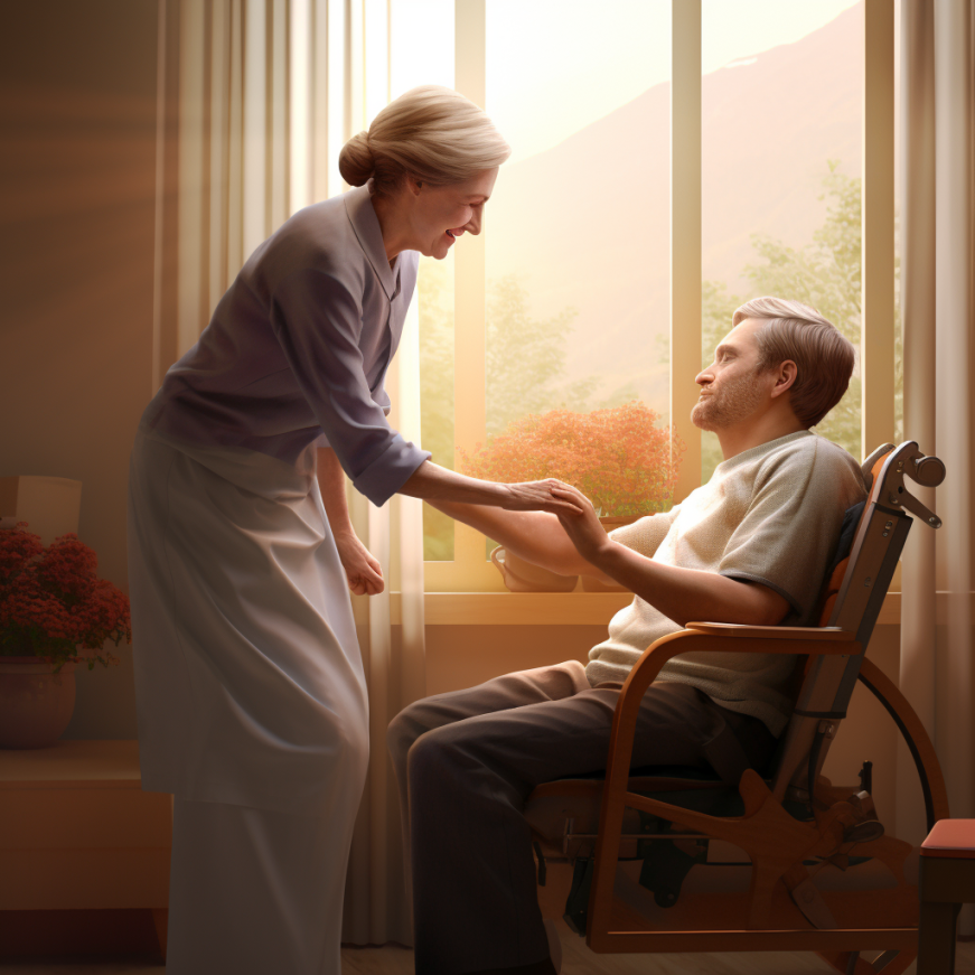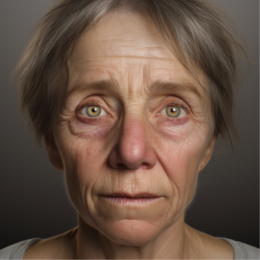What Do You Need to Be A Caregiver? A Comprehensive Guide

The role of a caregiver is as complex as it is rewarding. According to the National Institute on Aging, millions of Americans are caregivers, providing essential emotional and physical support to family or friends. This article aims to be your go-to guide, offering tips for caregivers and advice for caregivers to help you navigate the multifaceted world of caregiving.
Understanding the Role of a Caregiver
Definition and Scope of Caregiving
Caregivers are individuals who provide various forms of assistance to people who are unable to perform daily activities independently. This can range from helping with personal hygiene to administering medication.
Types of Caregiving Roles
There are several types of caregivers, including family caregivers, volunteer caregivers, and professional caregivers. Each type has its unique set of responsibilities of a caregiver, from providing emotional support to offering specialized medical care.
Demands of Caregiving
Caregiving can be physically and emotionally demanding. Tasks can range from running errands and providing companionship to more specialized roles like administering medication or physical therapy.
Facts and Statistics:
Family caregivers provide over 75% of caregiving support in the United States.
Qualities and Skills Needed to be a Caregiver
Compassion and Empathy
Empathy and compassion are not just buzzwords; they are essential qualities that enable caregivers to understand and meet the emotional needs of the care recipient.
Patience and Understanding
Patience is more than a virtue in caregiving; it’s a necessity. Understanding the limitations and needs of the care recipient can make the caregiving process smoother for both parties.
Effective Communication Skills
Clear and compassionate communication is key. It helps in understanding the needs of the care recipient and in conveying necessary information to medical professionals.
Organizational and Time Management Skills
Caregivers often juggle multiple tasks, from scheduling medical appointments to ensuring medication is taken on time. Being organized can significantly reduce caregiver stress.
Flexibility and Adaptability
Care needs can change rapidly, requiring caregivers to adapt their plans and schedules frequently. Being flexible can make these transitions easier to manage.
Knowledge of Care Recipient’s Needs
Understanding the specific medical and emotional needs of the care recipient is crucial for effective caregiving. This often requires specialized training or education.
Facts and Statistics:
85% of caregivers are family members, indicating the importance of emotional qualities like compassion and empathy.
Emotional Preparedness
Coping with Stress and Burnout
Caregiving can be emotionally draining, leading to caregiver stress and burnout. Learning coping mechanisms and knowing when to seek help are essential.

Balancing Caregiving with Personal Life
Striking a balance between caregiving responsibilities and personal life is crucial for long-term sustainability in the caregiving role.
Seeking Emotional Support
Support groups, counseling, and even talking to understanding friends can provide emotional relief and practical advice for caregivers.
Facts and Statistics:
About 40% to 70% of family caregivers have clinically significant symptoms of depression.
Practical Considerations
Legal and Financial Aspects of Caregiving
Understanding the legal obligations and financial aspects, such as insurance and payment options, can help in long-term caregiving.
Identifying Support Services and Resources
There are numerous organizations and online resources that offer support services to caregivers, ranging from financial aid to respite care.
Creating a Caregiving Plan
Having a well-thought-out plan can make the caregiving process more manageable and less stressful.
Facts and Statistics:
Nearly 1 in 10 caregivers is 75 years of age or older.
Quick Poll
Training and Education
Formal Education and Certification Options
According to MeetCaregivers, caregiver certification can open doors to specialized fields like hospice care and dementia care. It’s an investment in both your career and the quality of care you can provide.
On-the-Job Training and Hands-on Experience
Practical experience often provides insights that formal education cannot. Many caregivers start with smaller responsibilities and gradually take on more as they gain experience.
Continuing Education and Staying Informed
The caregiving field is always evolving. Continuing education, whether formal or through personal research, can help you stay updated on the best care practices.
Facts and Statistics:
22% of caregivers have received some type of training, with most of it focusing on managing emotional stress.
VII. Self-Care for Caregivers
The Importance of Self-Care
Ignoring self-care can lead to caregiver burnout, affecting both the caregiver and the recipient negatively.
Self-Care Tips for Caregivers
Regular breaks, exercise, and proper nutrition can go a long way in maintaining physical and mental health.
Avoiding Caregiver Burnout
Recognizing the early signs of burnout and taking proactive steps can prevent a minor issue from becoming a major problem.
Facts and Statistics:
63% of caregivers report having poor eating habits compared to non-caregivers.
Navigating Challenging Situations
Dealing with Difficult Care Recipients
Not all care recipients are easy to deal with. Effective communication and patience are key in managing challenging behaviors.
Managing Conflicts and Communication Breakdowns
Conflicts are inevitable in any relationship. How you manage them can make a significant difference in the caregiving experience.
Recognizing Signs of Abuse or Neglect
Being vigilant can help in the early detection of abuse or neglect, allowing for timely intervention.
Facts and Statistics:
One in five caregivers reports a high level of physical strain related to caregiving.
The Rewards of Caregiving
Personal Growth and Fulfillment
The challenges of caregiving are many, but the rewards — personal growth, emotional fulfillment, and the gratitude of the care recipient — make it worthwhile.
Building Meaningful Relationships
The bonds formed during the caregiving experience can be deeply fulfilling and often last a lifetime.
Impact on the Care Recipient
The ultimate reward is the positive impact you can have on the life of the care recipient, improving their quality of life in tangible ways.
Facts and Statistics:
83% of caregivers view caregiving as a positive experience.
Personal Story: Emily’s Transformation
Emily, a 28-year-old woman, faced a life-changing decision when her grandmother was diagnosed with Alzheimer’s disease. Choosing to become her primary caregiver, Emily stepped into a role she had little experience with. The initial weeks were challenging, filled with learning how to administer medications and manage her grandmother’s emotional ups and downs.
However, as time passed, Emily found that the experience was transforming her in profound ways. She learned the value of patience when dealing with her grandmother’s repetitive questions, the importance of compassion when assisting with daily tasks, and the depth of human connection that can come from caring for another person. This journey not only changed her grandmother’s life for the better but also enriched Emily’s own understanding of empathy and love.
Conclusion
Caregiving is not just a job; it’s a calling that requires a unique set of skills and emotional resilience. Whether you’re a family member or a professional, the role you play is invaluable. So, how to become a caregiver? Start with compassion, acquire the necessary skills, and never stop learning.
PLEASE SHARE YOUR EXPERIENCE AND THE COMMENTS BELOW, SO WE CAN HELP EACH OTHER WITH THE KNOWLEDGE YOU HAVE GAINED.
References
- Caregivers.com. What is a Professional Caregiver? https://www.caregivers.com/in-home-care/caregiver-qualifications
- MeetCaregivers. Caregiver Certification: A Guide. https://meetcaregivers.com/caregiver-certification-basics/
- National Institute of Aging. Caregiving. https://www.nia.nih.gov/health/topics/caregiving





